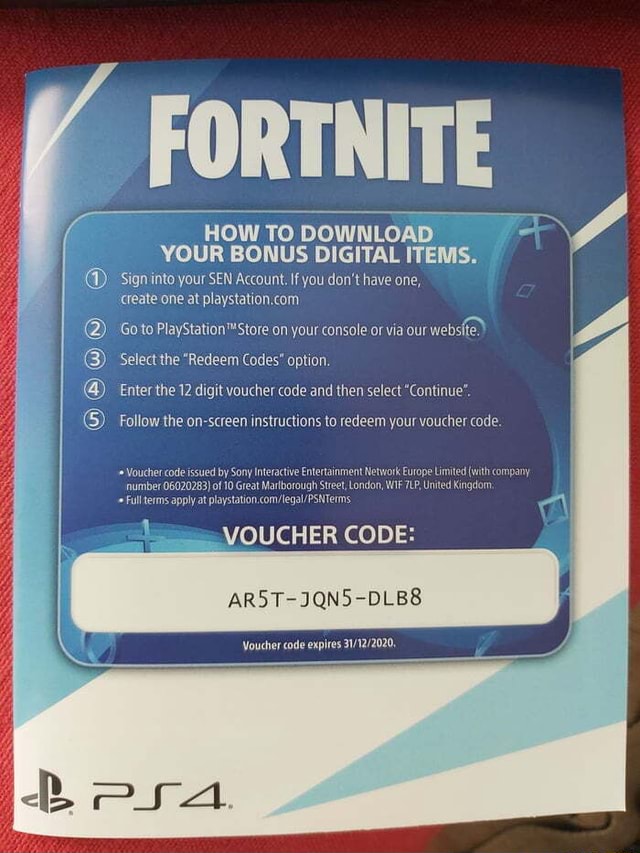Fortnite's In-Game Store: Epic Games Faces Fresh Legal Action

Table of Contents
The Nature of the Lawsuit Against Fortnite's In-Game Store
A class-action lawsuit has been filed against Epic Games, alleging deceptive trade practices and false advertising related to Fortnite's in-game store and its loot box mechanics. The plaintiffs claim that Epic Games employs manipulative techniques to encourage excessive spending on virtual items.
- Deceptive Marketing: The lawsuit alleges that the marketing surrounding loot boxes in Fortnite is misleading, failing to adequately disclose the probabilities of obtaining rare or desirable items. This lack of transparency, plaintiffs argue, constitutes deceptive marketing practices.
- Predatory Practices: The suit further claims that the loot box system is designed to be psychologically addictive, preying on players' desire for rare items and exploiting their tendency towards impulsive purchases. This is particularly concerning, plaintiffs argue, given the large number of underage players in the Fortnite community.
- Similar Lawsuits: This is not the first time a major game developer has faced legal action over loot boxes. Similar lawsuits have been filed against other companies, highlighting a growing concern about the ethical and legal implications of these in-game purchasing mechanisms. The outcome of this case could set a significant legal precedent for the entire gaming industry.
The Argument Around Loot Boxes and Gambling
The core argument revolves around whether loot boxes constitute a form of gambling. Critics argue that the mechanics are functionally similar to gambling, offering a chance to win virtual rewards with varying probabilities. This is particularly concerning for younger players who may not fully understand the risks involved.
- Addiction and Exploitation: The unpredictable nature of loot boxes can be highly addictive, leading to excessive spending and potential financial hardship. The element of chance and the pursuit of rare items mirror the addictive qualities of traditional gambling.
- Global Regulatory Frameworks: Different jurisdictions around the world are taking varying approaches to the regulation of loot boxes. Some countries have already implemented regulations or guidelines, while others are actively considering legislation.
- Examples of Regulation: Belgium, for instance, has classified loot boxes as gambling, while other countries are exploring measures such as mandatory probability disclosures or age restrictions on access to loot box systems. The inconsistent approach highlights the need for a more unified global standard.
Epic Games' Response and Potential Outcomes
Epic Games has yet to issue a formal public statement directly addressing the specific claims of the lawsuit. However, the company's past responses to similar criticisms have focused on the argument that loot boxes are purely cosmetic and do not offer any competitive advantage within the game.
- Potential Outcomes: The lawsuit could result in a settlement, a court decision in favor of the plaintiffs, or a dismissal. Any of these outcomes would have far-reaching consequences.
- Industry Impact: A court ruling against Epic Games could trigger a wave of similar lawsuits against other game developers and publishers, potentially forcing widespread changes to in-game store policies and practices.
- Regulatory Changes: The lawsuit could also accelerate the regulatory process, pushing governments to implement stricter regulations on loot boxes and in-game microtransactions globally.
The Future of In-Game Purchases and Consumer Protection
This legal battle highlights the urgent need for increased transparency and responsible gaming practices within the video game industry.
- Increased Regulatory Scrutiny: We can expect to see increased scrutiny from regulatory bodies around the world, leading to stricter guidelines and potentially even bans on certain types of loot box mechanics.
- Industry-Wide Changes: The gaming industry may need to fundamentally rethink its approach to in-game purchases, moving toward clearer disclosures of probabilities, fairer pricing structures, and more robust mechanisms to prevent underage spending.
- Importance of Transparency: Open and honest communication about the odds of obtaining items from loot boxes is crucial for building trust with players and ensuring ethical gaming practices. The future of in-game economies depends on prioritizing responsible gaming above profit maximization.
Conclusion
This legal action against Fortnite's in-game store highlights the growing concerns surrounding loot boxes, microtransactions, and their potential for exploitation. The outcome of this lawsuit will have significant implications for Epic Games, the gaming industry as a whole, and the level of consumer protection afforded to players.
Call to Action: Stay informed about the evolving legal landscape surrounding Fortnite's in-game store and other similar gaming practices. Understanding the intricacies of loot boxes and microtransactions is crucial for both players and developers alike. Follow this blog for updates on the case and other important developments related to Fortnite's in-game store and the future of gaming regulation.

Featured Posts
-
 Claim Your Free Cowboy Bebop Gear In Fortnite Limited Time Offer
May 17, 2025
Claim Your Free Cowboy Bebop Gear In Fortnite Limited Time Offer
May 17, 2025 -
 Ai Powered Podcast Creation From Repetitive Scatological Data To Engaging Content
May 17, 2025
Ai Powered Podcast Creation From Repetitive Scatological Data To Engaging Content
May 17, 2025 -
 Iga Svjontek I Ukrajinska Protivnica Pregled Utakmice
May 17, 2025
Iga Svjontek I Ukrajinska Protivnica Pregled Utakmice
May 17, 2025 -
 Pga Championship Opening Round Unexpected Leader Struggling Favorites
May 17, 2025
Pga Championship Opening Round Unexpected Leader Struggling Favorites
May 17, 2025 -
 Fortnite Item Shop Update What Went Wrong
May 17, 2025
Fortnite Item Shop Update What Went Wrong
May 17, 2025
